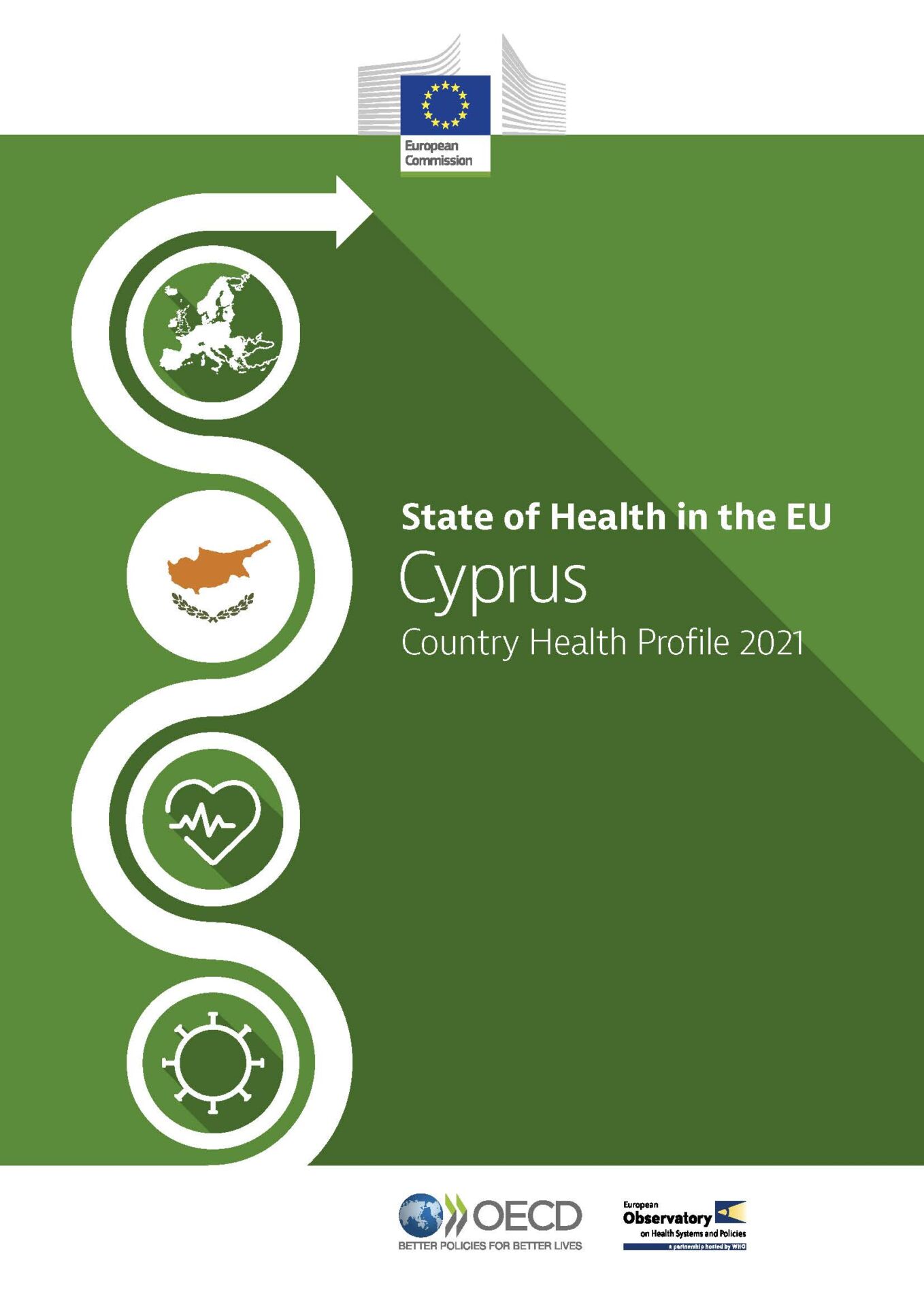Overall, the Cypriot population is among the healthiest in the EU. As of August 2021, the impact of Covid-19 on mortality and life expectancy had been limited. The population enjoys good health outcomes, despite the prevalence of risk factors such as smoking and obesity.
Since 2019, health system reforms to introduce universal coverage and improve overall efficiency have been implemented, despite the ongoing pandemic, and changes to healthcare financing mechanisms have facilitated surge capacity.
As well as improving coverage and resilience, the new General Healthcare System is expected to improve accessibility by cutting waiting times.
Cyprus’s health status
As in several other EU countries, gains in life expectancy in Cyprus slowed over the past decade. Notwithstanding the Covid-19 pandemic, life expectancy in 2020 remained stable at 82.3 years. The leading causes of death are circulatory diseases, cancer and diabetes. While the number of people dying from circulatory diseases has consistently fallen since 2015, the cancer mortality rate has remained stable.
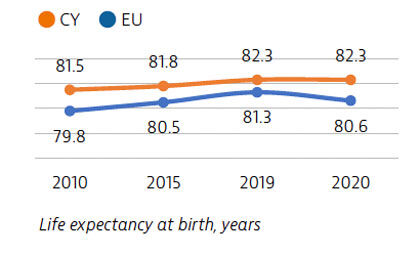
Risk factors
Smoking rates in Cyprus are among the highest in the EU and constitute a major public health issue. Although adult obesity rates are close to the EU average, childhood obesity is increasingly common. Alcohol consumption is less of a concern, but all the risk factors are more prevalent in lower-income households, contributing to health inequalities.
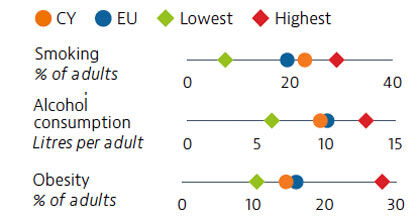
Cyprus’s health system
Spending on health in Cyprus remains consistently below the EU average, at €1,881 per capita in 2019 compared with €3,523 for the EU as a whole. Spending on all components of the system is low. One important goal of recent extensive health system reforms to introduce universal coverage is to reduce what was the highest level of out-of-pocket spending in the EU by improving financial protection.
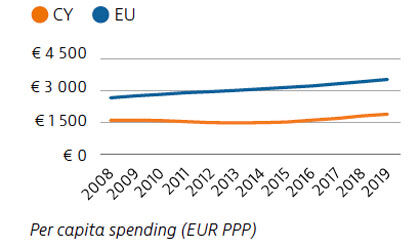
Effectiveness
Death rates from preventable causes in Cyprus are among the lowest in the EU. The leading cause of preventable mortality is lung cancer, driven by high smoking rates. Death rates from treatable causes are also below the EU average. Strategies are in place to improve comprehensive data collection on cancer survival rates.
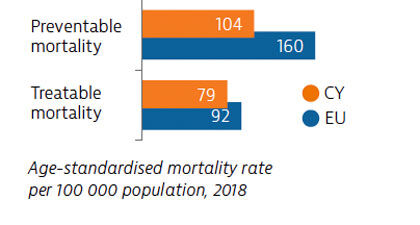
Accessibility
Fewer than one in six Cypriots reported having forgone necessary medical care during the Covid-19 pandemic, a rate consistent with the below-average rates of unmet medical needs reported before the pandemic across the EU. To ensure safe access to care during the pandemic, patients were encouraged to access their doctor primarily by telephone.
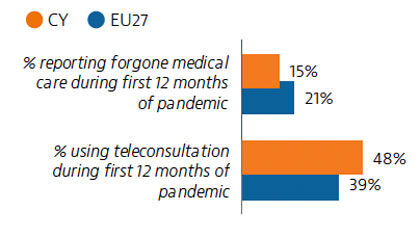
Resilience
Financing reforms introduced shortly before the pandemic allowed greater flexibility in planning and contracting with service providers. This facilitated the development of surge capacity during the Covid-19 crisis. Cyprus was also able to roll out its vaccination campaign swiftly. The main capacity constraint is the ongoing shortage of health workers.
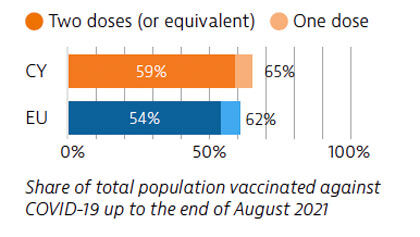
OECD/European Observatory on Health Systems and Policies (2021), Cyprus: Country Health Profile 2021, State of Health in the EU, OECD Publishing, Paris/European Observatory on Health Systems and Policies, Brussels.









